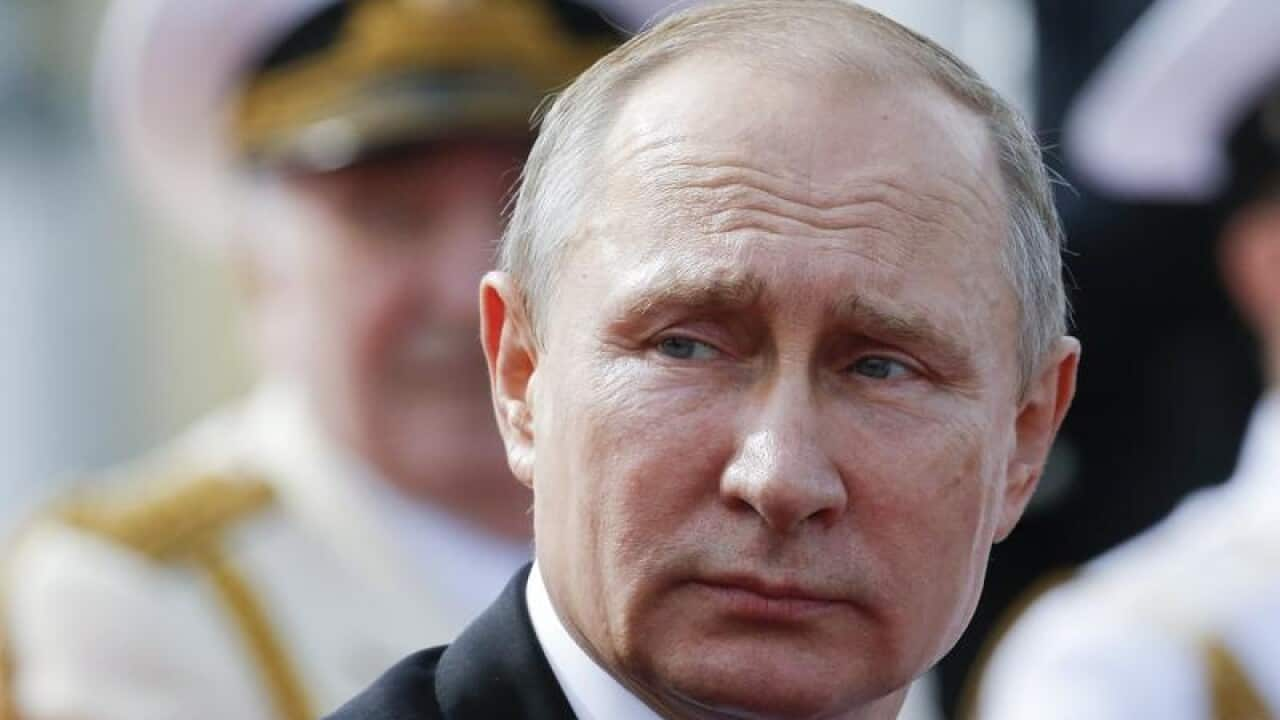The United States can include its local employees among the 755 diplomatic staff it must cut in Russia, a Kremlin spokesman says, tempering the impact of an ultimatum issued by Russian President Vladimir Putin.
The clarification from the Kremlin means that there will not necessarily be a mass expulsion of US diplomats as part of Moscow's retaliation for new sanctions that are to be imposed on Russia by the United States.
The vast majority of the United States' roughly 1,200 embassy and consulate staff in Russia are Russian citizens. Reducing their numbers will affect embassy and consular operations, but that step does not carry the same diplomatic impact as expelling US diplomats from the country.
Still, slashing the US embassy and consular staff by about 60 per cent amounts to the most dramatic diplomatic cuts between the two countries since the Cold War.
Commenting on which diplomatic staff would have to go, Kremlin spokesman Dmitry Peskov told reporters on a conference call: "That's the choice of the United States."
"(It's) diplomats and technical employees. That is, we're not talking purely about diplomats - obviously, there isn't that number of diplomats - but about people with non-diplomatic status, and people hired locally, and Russian citizens who work there," he said.
As of 2013, the US mission in Russia, including the Moscow embassy and consulates in St Petersburg, Yekaterinburg and Vladivostok, employed 1,279 staff, according to a State Department Inspector General's report that year. That included 934 "locally employed" staff and 301 US "direct-hire" staff.
The Russian measures were announced after the US House of Representatives and the Senate overwhelmingly approved new sanctions on Russia. The White House said on Friday that Trump would sign the sanctions bill.
The new US sanctions were partly a response to conclusions by US intelligence agencies that Russia meddled in the 2016 US presidential election to help Trump win it, and to punish Russia further for its 2014 annexation of Crimea from Ukraine.
Moscow's response included word that it would seize two US diplomatic properties - a warehouse in southern Moscow and a complex on the outskirts of the city that embassy staff use for weekend recreation.
In an interview broadcast on Russian state television on Sunday, Putin said he acted as there was no sign that relations between Russia and the United States were improving under Trump.
"We were waiting for quite a long time that maybe something would change for the better, were holding out hope that the situation would change somehow. But it appears that even if it changes someday it will not change soon," Putin said.
Share

